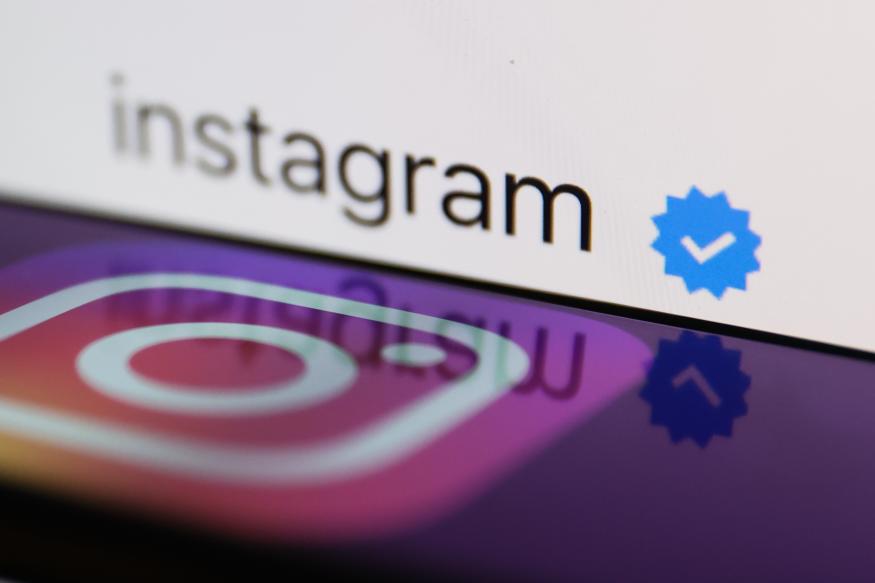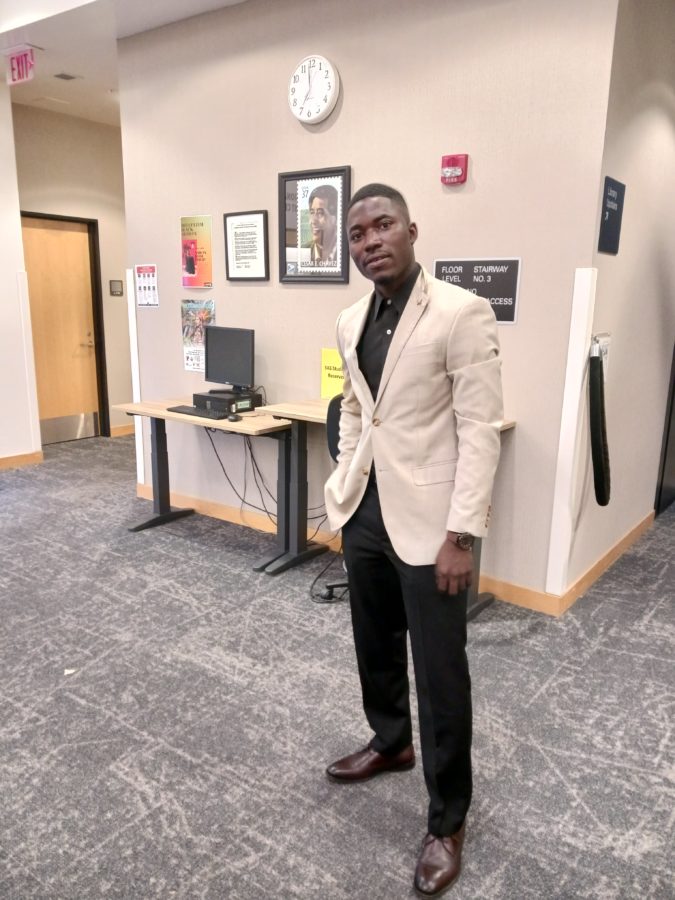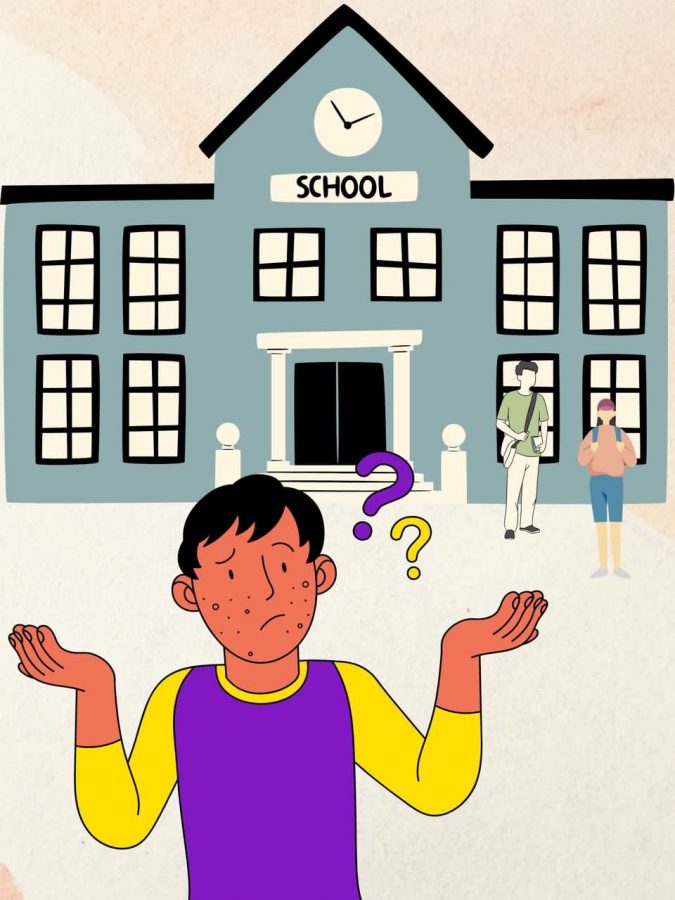
 Cultural awareness is the key to cultural acceptance in this country
Cultural awareness is the key to cultural acceptance in this country
Understanding the history and significance behind cultural celebration months is the key to accepting them as something helpful to our culture in America.
Trace the history of black history month, it was Carter G. Woodson, who was born to a slave family but later received his Ph.D. at Harvard University. He started what was called Negro History week in the second of week February. This week was chosen because it marked the birthday of the two most significant figures to the Black community’s history, Abraham Lincoln and Frederick Douglass. Since 1976, the celebration was expanded to a whole month by the federal government.
Even though Black History Month is one of the commemorative months in United State, the purpose if holding such celebration is not only about the past generation, but also about the acknowledgement for the generation in the present and the future.
It is true that African American community is always an important part of the American history. There were so many significant things that this particular community has contributed to America. There have been so many important figures that had changed this country or at least some part of it, such as Martin Luther King, Louis Armstrong, Muhammad Ali or our current president, Barack Obama.
The Black community as well as the Native American, Asian Pacific American community and Hispanic community all contribute to this country.
Their cultures, their cuisines, their music and their values are parts of what have made the America what it is today.
The reason for these cultural celebrations is to help educate against the assumptions made of cultures. There are so many different aspects within these cultures that few know about.
Another very valid argument against this month celebration is that it is not fair. By having only one month for Women History, does it mean the other eleven months are for Men History, or does it mean Men don’t any History at all? Or does it mean the other eleven month are for White History only?
We all know that there is no such a month. But there are such things like discrimination and sexism. Since there are women and men on this earth, if all were treated equally and fairly, then we would not have need for a Women’s History month, just a simple men and woman’s history month.
If you want to say that we should be fair to every sex and race in this world, that we should celebrate them all, then first everyone has to be treated equally. But nine of every 10 rape victims were female in 2003, according to the Rape, Abuse & Incest National Network. In every 15 seconds, somewhere in America, there is a woman is battered, usually by her intimate partner, according to the United Nation Study of the Status of Women in 2000. And women are paid less than men for the same work in many places.
The achievements of someone who has so many obstacles to get to their goals are more significant and awardable than those of someone who has all the conveniences and priorities.
There is a need to acknowledge and recognize the minorities and the inferiorities when their achievements make a tremendous change to the community they live in.
May was chosen to be the Asian-Pacific American History Month, because the two important anniversaries which are the arrival of the first Japanese immigrants in America and the completion of the transcontinental railroad which was done by many Chinese laborers. The same as the Black History Month, it was first known as a Week Celebration but later expanded by the federal government to a whole month celebration.
It is true that there are too many cultures, languages, religions, races in this world is to celebrate for only 365 days. This is why within one day, there are so many activities are going on that we are not aware of.
This is why it is also wrong to say that there is only one culture or community dominates the whole month. No one can stop anyone from celebrating or when they want to do it.
March is not only the Women History Month, but also the Irish-American Heritage Month because more than 44 million of Americans have Irish decent and celebrate the St. Patrick’s Day. This month is also the National Peanut Month, according to the Holiday Insights website and National Celery Month, according to the State-Journal Register newspaper. Within only this month, there are celebrations from almost every single day in
March, such as March 12 as the National Baked Scallops Day and March 14 as the National Potato Chip Day.
If that is not enough, some days in March will fall into the Mardi Gras and Ash Wednesday festival in the Western Christian calendar or it may fall into the Passover festival for the Jewish communities.
Be realistic. How are you going to celebrate all these within one day? Or how are you going to celebrate of all these with only 365 days a year?
It is not a priority for only Women in March, or Hispanic community in September, or Lesbian, Gay, Bisexual and Transgender community in June.
Yet it is what the majority of the population of a specific area or group that are actually interested and wanting to participate.
It’s true that we should acknowledge these celebrations every day. Yet this should be your discretion. It should be things that you would do without even questioning or being asked to do.
The respect for different cultures, sexes and races should be always with you in the way you treat others. Those special celebrations should not be the only time you pay your respect to your mother or say that you love your partner.
Regardless of how many days in the month or what time of year it is, diversity should always be celebrated. Keeping an open mind on those special holidays or celebratory days will open your mind and expand your cultural knowledge.
Heritage months do not account for cultural diversity in the United States
Focusing a specific time frame on specific cultural heritage months is an activity that serves to divide our society rather than bring us together.
Instead of celebrating cultural diversity, we are forced to give heavy weight to only a few prominent cultural groups.
The argument is often made by proponents of heritage months that many groups, such as African-Americans, Native Americans, Chinese-Americans, Japanese-Americans, Irish-Americans and others, suffered in our history and thus should have a special dedicated time of year for us to be more sensitive to those cultures.
Some members of these groups seem to be playing a divisive war of whom America has wronged more historically speaking , each ranking the hardships and strife of the ancestors of their particular group as greater or less than others.
While they are all right, the history of America is fraught with hardships, injustices and unfairnesses along cultural lines, echos of which still exist in post-modern times.
While we do not have a perfect record in America we have an ever-progressive movement toward equality and equilibrium rarely seen elsewhere on the Earth.
How is perpetrating an injustice of giving unequal or nonexistent time to all cultures not a divisive issue?
A simple look at the heritage month graphic associated with this column shows us how we have chosen to divide our calendar up into small periods of cultural appreciation.
It’s nice that we have several major American cultures accounted for, but what about the thousands of cultures we do not have represented?
If we take a global perspective on culture, how many cultures would we find in the world?
The answer is the number of cultures that exist in the world is extremely difficult to quantify.
In an effort to quantify this concept for illustrative purposes, let us use living languages as an indicator of a world culture count.
The 16th edition of “Ethnologue: Languages of the World” describes and catalogues about 7,000 distinct living languages in the world today.
Certainly it could be argued that a significant number of those languages contain many sub cultures, but this number gives us a starting point to work with.
If we were to focus an equal amount of our time on each cultural heritage indicated by the number of languages in the world, we would be forced to give each one approximately three minutes annually.
This is with around the clock cultural festivities.
This amount of time seems far too insignificant to actually truly appreciate our global cultural diversity.
Cultural diversity is not something we should think about during arbitrary month-long periods. Instead let us honor and give fair weight to all history and all contributions across cultures without sorting peers along ethnic or racial lines every day of the year.
Let’s move past political correctness and into post-racial understanding.
Only this type of growth will open the way for all peoples of all cultures to move forward together in a post-racial environment and empower humankind to remove ethnicity as a quality of a person, and approach people as people.
I think the citizens of Singapore have the right idea.
They were able to come together as a community and in so doing in 1997 converted the memory of the most violent riots and cultural clashes between the Chinese, Malaysian and Indian cultures of their history into an annual celebration of the progress those cultures have made together.
July 21, celebrated as Racial Harmony Day in Singapore, is an annual celebration where the various cultures of the region encourage each other to dress in their traditional manner and share culturally significant delicacies, art, music and games.
I think that all our various cultural heritage months should be replaced with a month dedicated to the celebration of Cultural Harmony, not individual cultural differences.
Our melting pot of cultural heritages should be celebrated.
This is the direction America needs to go if we are ever to really achieve a truly post-racial society.[media-credit id=1 align=”alignleft” width=”72″]






